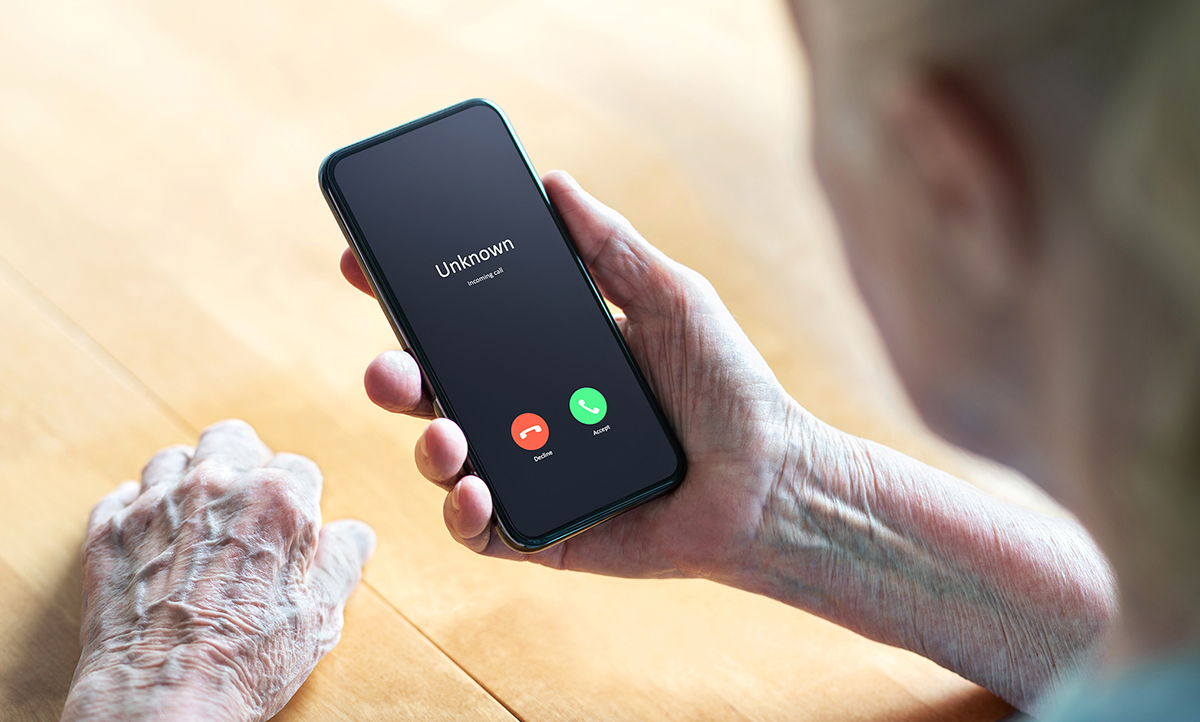Article by Martin Bailey, AARP Community Ambassador, Silver Shield Task Force
(Posted 2024 January)

 By now, you’ve probably heard of the grandparent scam. If not, it goes like this: the phone rings and you pick up, only to hear the voice of a person you believe is your grandchild. They explain that they have been in an accident, or arrested, or kidnapped, and are begging you to immediately send money to help them. This scam relies on emotional manipulation, creating a panic response that causes you to abandon all rational thought and simply react.
By now, you’ve probably heard of the grandparent scam. If not, it goes like this: the phone rings and you pick up, only to hear the voice of a person you believe is your grandchild. They explain that they have been in an accident, or arrested, or kidnapped, and are begging you to immediately send money to help them. This scam relies on emotional manipulation, creating a panic response that causes you to abandon all rational thought and simply react.
This scam originally relied on a scammer’s ability to do a decent impersonation of your loved one’s voice, but scammers are now using Artificial Intelligence (AI) to make the scam even more convincing. A March 2023 Washington Post article warned that, “Advancements in artificial intelligence have added a terrifying new layer, allowing bad actors to replicate a voice with just an audio sample of a few sentences. Powered by AI, a slew of cheap online tools can translate an audio file into a replica of a voice, allowing a swindler to make it ‘speak’ whatever they type.”
To clone a voice, a scammer needs a sound bite between three and 30 seconds long. The longer the sound bite, the better the clone. The scammer uses AI voice-generating software to analyze what makes a person’s voice unique, then produces a very convincing cloned voice that they employ in the scam. Think about all the times our voices and the voices of our loved ones have been recorded and are available online, especially on social media such as TikTok, Instagram, and Facebook.
Faced with this increasingly sophisticated scam, how can we protect ourselves? The AARP Fraud Watch Network recommends taking these steps to protect yourself:
- Set the privacy settings on your social media accounts so that only people you know can access your posts, photos and videos, and tell your loved ones to do the same. Scammers search social media for content they can use to fool you.
- If you receive a call like this, don’t panic. Scammers succeed by manipulating your emotions.
- Don’t engage with the caller. Hang up and call your grandchild or other family members to confirm that your grandchild is safe.
- If someone calls you claiming to be a police officer, call the law enforcement agency directly to verify that their identity and the information they provided is true.
- If you are asked to send money using a gift card, cryptocurrency or peer-to-peer payment app, it’s likely a scam. Scammers like those payment methods because they’re difficult to trace.
Finally, always trust your instincts. If something doesn’t feel right, it probably isn’t. It is also important to stay up to date on the latest scams and fraud tactics. Visit AARP’s Fraud Watch Network at aarp.org/scams for latest news as well as tips and tools to help protect yourself.
Want to learn more about how AI is being used by scammers? Join us on April 19, 2024, at Fairfax County’s 7th annual Scam Jam. Check out the March 2024 issue of the Golden Gazette for additional information.
This article is part of the Golden Gazette monthly newsletter which covers a variety of topics and community news concerning older adults and caregivers in Fairfax County. Are you new to the Golden Gazette? Don’t miss out on future newsletters! Subscribe to get the electronic or free printed version mailed to you. Have a suggestion for a topic? Share it in an email or call 703-324-GOLD (4653).

